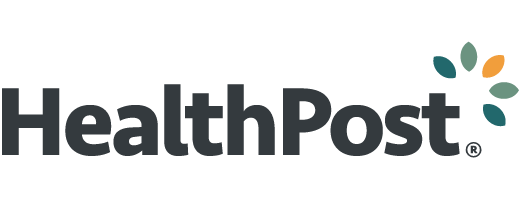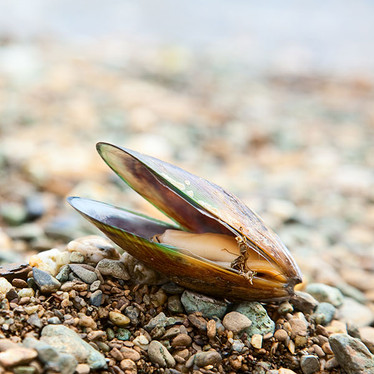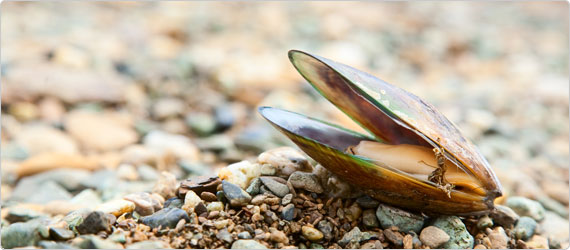Iodine deficiency is an epidemic
It was once thought that iodine’s only use was to correct thyroid function. Fortunately, we now know that it is important to have sufficient iodine intake for the functioning of the whole body. But unfortunately, iodine deficiency affects about two billion people around the world – and we in New Zealand are not exempt from contributing to this tally. The Ministry of Health have acknowledged that the iodine levels in New Zealanders are declining and they are looking at how they can potentially intervene with more food fortification.
A simple iodine deficiency can lead to a complex range of health conditions.
Seafood and eat it – as often as possible
Unless we’re eating seafood every day (seaweed, shell-fish, and fish), where exactly are we getting our iodine from? Our soil, and therefore our animal products (eggs, dairy, meat) lack iodine. (Unless the farmer specifically adds this mineral to his land or to the animal’s feed.)
We are now also exposed to numerous environmental toxins that interfere with the binding of iodine in the body such as halides (chlorine, fluoride and bromine) and goitrogens (these are found in raw veggies such as spinach, kale & cabbage, and foods such as soy products, maca powder, strawberries, apples, peaches, pears, walnuts, almonds, peanuts & millet).
And, while well-intended, iodised salt (which is primarily a refined, devitalised product) is not good for our general health. Therefore many of us have either reduced or eliminated it from our diets, or replaced it with rock or sea salt (which are low in iodine).
Note: The amount of iodine per gram of iodised salt is 70mcg. And, it is expected that most people would consume at least 2.5 grams of this substance daily. (That’s half a tsp). This would give them around 185 mcg of iodine daily. You will find it interesting to know that New Zealand sea kelp contains 1.8mg of iodine per 1/8th tsp! (This is about 10x as much.)
I.O.U iodine
The up-shot of all of this is that we’re simply not consuming sufficient iodine on a daily basis, and the toxic halides we consume and absorb from our environment inhibit iodine uptake by the tissues in our body.
We cannot hope to maintain a healthy weight or to support our memory, mood & energy without this vital mineral. We cannot expect to have healthy hormone production or immune system function without sufficient levels of iodine in our body. If we don’t have enough iodine in our diet, it can lead to all manner of health complaints because of all the amazing things iodine does in the body including:
- Thyroid Health
Iodine is an essential component of thyroid hormones. - Cell Function
Iodine supports metabolism within the cells. Metabolism can also be thought of as the heat within the body. - Immune Health
Iodine can be used to assist the immune system, particularly when viruses, bacteria, and parasites are involved. - Detoxification
Iodine is part of the normal detoxification processes, and antagonises heavy metals like lead and mercury as well as the halides, and phthalate chemicals.
And, even more specifically, iodine can be used to support women’s health in the following areas:
- Natural Fertility and Healthy Ovaries
Sufficient iodine supplementation may help to improve conception chances and support a healthy birth. Healthy ovarian structure and function (without cysts) is related to iodine status. - Irregular and Heavy Menses
- Vaginal Infections
Thrush or Bacterial Vaginosis (BV) – iodine is involved in a strong healthy immune system. - Low Sex Drive
We won’t feel like getting all ‘hot and steamy’ with someone if we’re not running on ‘full steam' ourselves… - Breast Health
Normal healthy breast tissue (without pain, lumps, cysts) is related to good iodine levels
‘Breast is best’ with iodine
Women’s breasts require an adequate amount of iodine to maintain their delicate infrastructure. The breasts are one of the main storage and utilisation sites for iodine. In his book, “Iodine — Why you need it. Why you can’t live without it”, David Brownstein, MD, writes that iodine can keep breast tissue healthy in the following ways:
- Iodine modulates the effect of oestrogen on breast tissue
- Iodine supports healthy inflammatory pathways
- Iodine is a potent antioxidant
For your health, and the health of your family, it would pay to seriously reassess the amount of sustainably sourced seafood you eat in your weekly diet (seaweed like NZ Kelp, Wakame and Karengo, shell-fish, and fish).
Lisa Fitzgibbon, Naturopath & Medical Herbalist
Lisa Fitzgibbon is a qualified (2006), experienced and registered Naturopath + Medical Herbalist. She draws on her professional training + experience, as well as her own personal experience to bring you realistic, holistic health advice. Lisa writes the popular health blog: www.lisasaid.so.
BioBalance Kelp Powder is sustainably harvested from the pristine waters of New Zealand. Rich in oceanic minerals, especially iodine, kelp supports healthy thyroid function, which in turn regulates metabolism. Buy it now from our secure online shop.
We’d Love Your Feedback
How much seafood do you eat on a weekly basis?
Do you have a favourite recipe using seaweed?


